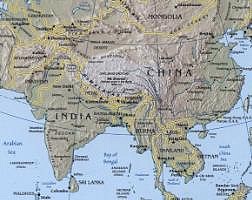With the security situation in Iraq improved to the point that analysts no longer shrink from using the word "endgame," Washington has increasingly turned its attention to the alarming situation in Afghanistan, where the insurgency has taken full advantage of safe havens on the Pakistani side of a border that exists largely in name only. Attempts to address the problem of how to intervene militarily without in turn destabilizing an already fragile Pakistan have led to an emerging consensus regarding a "regional approach," one that includes the India-Pakistan rivalry as a key to stabilizing the South Asian subcontinent.
But lurking in the shadows of the India-Pakistan rivalry is China, with its complex relations with the former and more steady patronage of the latter. The delicate balance of power that these three nuclear powers maintain complicates American policy, and will ultimately need to be taken into consideration for any lasting approach to stabilizing the broader region. In its latest feature issue, WPR examines The Asian Triangle:
In India Wary of U.S. 'Regional Approach', M.K. Bhadrakumar, a career diplomat in the Indian foreign service and South Asia specialist, discusses India's approach to the U.S.-Indian strategic partnership, and how America's evolving China policy and newfound emphasis on a "regional approach" have caused growing unease.

